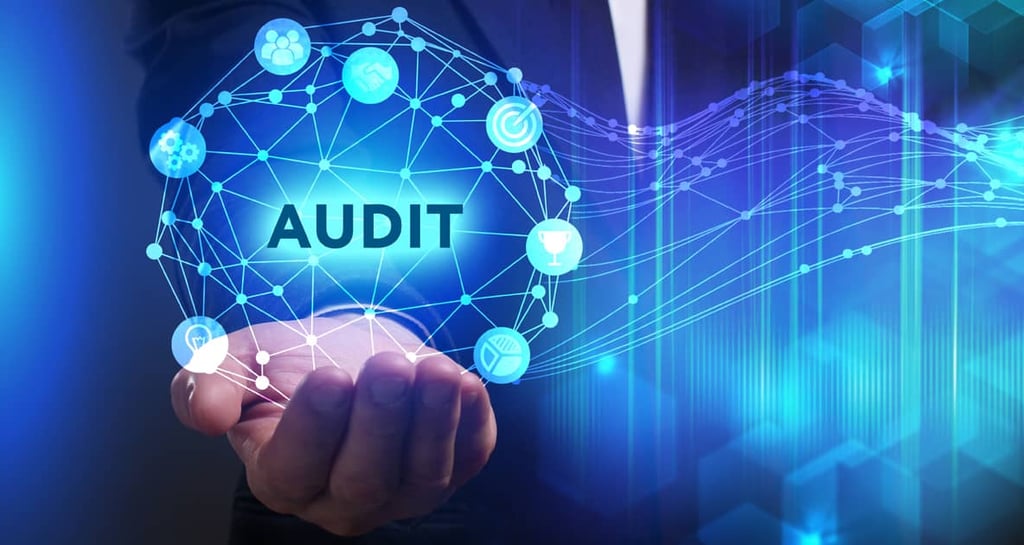
The Role of a Security Auditor in Ensuring Information System Integrity
CYBERSECURITY


As the digital landscape continues to evolve, organizations are increasingly relying on information systems to store and process their valuable data. However, with this increased reliance comes the need for robust security measures to protect against potential threats and vulnerabilities. This is where the role of a security auditor becomes crucial.
What is a Security Auditor?
A security auditor is an individual who specializes in conducting audits on an organization's information systems. Their primary responsibility is to assess the effectiveness of security controls and identify any potential weaknesses or vulnerabilities that could be exploited by malicious actors.
Security auditors play a vital role in ensuring that an organization's information systems are secure and in compliance with relevant regulations and industry best practices. By conducting thorough audits, they help identify areas for improvement and recommend measures to enhance the overall security posture.
The Importance of Security Audits
Security audits are essential for several reasons:
1. Identifying Vulnerabilities
One of the primary objectives of a security audit is to identify vulnerabilities within an organization's information systems. By conducting comprehensive assessments, auditors can uncover potential weaknesses that may otherwise go unnoticed. This allows organizations to address these vulnerabilities proactively, minimizing the risk of security breaches.
2. Ensuring Regulatory Compliance
Many industries have specific regulations and standards that organizations must adhere to regarding the security and privacy of sensitive information. Security auditors help organizations ensure compliance with these regulations by evaluating their systems and processes against the required standards. This helps organizations avoid costly penalties and reputational damage associated with non-compliance.
3. Enhancing Security Controls
Security auditors provide valuable insights into the effectiveness of an organization's existing security controls. By identifying gaps and weaknesses, they can recommend improvements and help organizations implement stronger security measures. This proactive approach helps organizations stay one step ahead of potential threats.
The Role of a Security Auditor
A security auditor's role involves several key responsibilities:
1. Planning and Preparation
Before conducting an audit, a security auditor must thoroughly understand the organization's systems, processes, and security objectives. This involves reviewing documentation, interviewing key personnel, and gaining a comprehensive understanding of the organization's information systems.
2. Conducting Audits
During the audit process, security auditors employ various techniques to assess the effectiveness of security controls. This may include reviewing system configurations, analyzing access controls, and conducting vulnerability assessments. They also examine security policies and procedures to ensure they align with industry best practices.
3. Reporting and Recommendations
After completing the audit, security auditors prepare detailed reports outlining their findings and recommendations. These reports provide organizations with a clear understanding of their security posture, including identified vulnerabilities and suggested remediation strategies. By presenting this information in a comprehensive and actionable manner, auditors enable organizations to make informed decisions to improve their security.
4. Continuous Monitoring
Security audits are not a one-time event; they are an ongoing process. Security auditors may recommend implementing continuous monitoring systems to detect and respond to potential security incidents in real-time. By continuously monitoring systems and processes, organizations can proactively address security issues before they escalate.
Qualifications and Skills
To excel as a security auditor, individuals should possess the following qualifications and skills:
1. Technical Expertise
A deep understanding of information systems, network security, and industry best practices is essential for a security auditor. They should be knowledgeable about various security frameworks, such as ISO 27001, NIST, and PCI DSS, and possess expertise in conducting vulnerability assessments and penetration testing.
2. Analytical Skills
Security auditors need strong analytical skills to assess complex systems and identify potential vulnerabilities. They should be able to analyze large amounts of data, identify patterns, and draw meaningful conclusions to inform their audit findings.
3. Communication Skills
Effective communication is critical for security auditors. They must be able to clearly articulate their findings and recommendations to both technical and non-technical stakeholders. Strong written and verbal communication skills are essential for preparing comprehensive audit reports and presenting their findings to management.
4. Attention to Detail
Security auditors must have a keen eye for detail to identify even the smallest vulnerabilities or weaknesses. They should be meticulous in their approach and leave no stone unturned during the audit process.
Conclusion
Security auditors play a vital role in ensuring the integrity and security of an organization's information systems. By conducting thorough audits, they help identify vulnerabilities, ensure regulatory compliance, and enhance security controls. With their expertise and skills, security auditors contribute to the ongoing protection of valuable data and the overall resilience of organizations in the face of evolving cyber threats.


